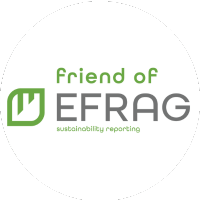ESG reporting is the disclosure of data explaining a business’s impact and added value in three areas: environment, social and corporate governance.
Just as a company would produce financial reports, ESG or sustainability reports provide a summary of quantitative and qualitative disclosures supported by analysis of performance across these ESG factors.
Examples of these factors:
- Environment: Climate change and carbon emissions, air and water quality, biodiversity, deforestation, energy efficiency, waste management
- Social: Customer satisfaction, data protection and privacy, gender and diversity, employee engagement, community relations, human rights, labor standards
- Governance: Board composition, audit committee structure, bribery and corruption, executive compensation, lobbying, political contributions, whistleblower programs
Many companies chose to integrate their ESG reporting in their annual reporting to demonstrate how sustainability is embedded in their business.
Investors especially, want more financially material and higher quality information to inform their decisions.



